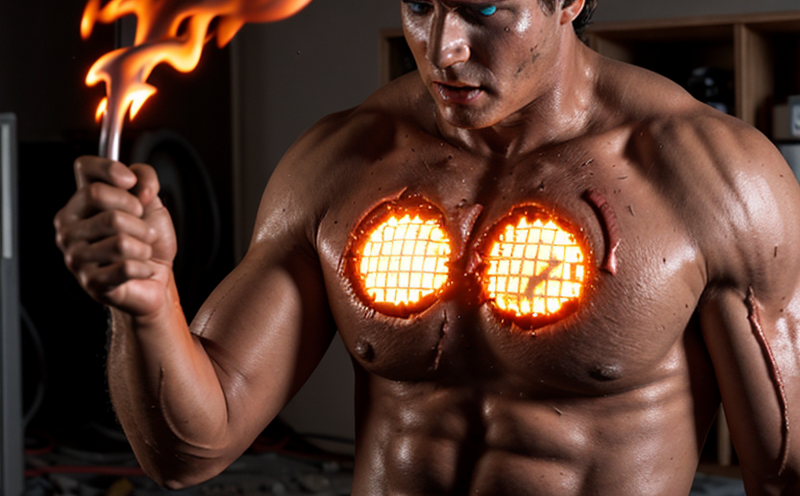Overheating During Physical Demands: Understanding the Risks and Consequences
Physical demands, whether due to intense exercise, heat waves, or environmental conditions, can lead to overheating in humans. This phenomenon occurs when the bodys ability to regulate temperature is overwhelmed by external factors, causing the internal core temperature to rise. Overheating can have severe consequences, including heat-related illnesses and even death.
Causes of Overheating During Physical Demands
There are several reasons why people may experience overheating during physical demands:
High environmental temperatures: Exposure to high temperatures, especially in environments with direct sunlight or high humidity, can increase the bodys core temperature.
Physical exertion: Engaging in strenuous activities like sports, construction work, or other labor-intensive tasks can raise body temperature due to increased metabolism and heat production.
Poor hydration: Failing to drink enough fluids during physical activity can lead to dehydration, making it difficult for the body to regulate its internal temperature.
Medical conditions: Certain medical conditions, such as anemia, obesity, or heart disease, can impair the bodys ability to cool itself.
Risk Factors for Overheating
Some individuals are more susceptible to overheating due to various risk factors:
Age: Older adults and young children may have difficulty regulating their body temperature due to decreased sweat production or impaired thermoregulation.
Medical conditions: Certain medical conditions, such as diabetes, kidney disease, or heart disease, can increase the risk of overheating.
Medications: Some medications, including diuretics, beta-blockers, and certain antidepressants, can impair the bodys ability to cool itself.
Obesity: Excess weight can make it more difficult for the body to regulate its internal temperature.
Consequences of Overheating
Overheating can lead to various heat-related illnesses, including:
Heat exhaustion: A condition characterized by heavy sweating, pale skin, and a rapid pulse. If left untreated, heat exhaustion can progress to heat stroke.
Heat stroke: A life-threatening condition that occurs when the bodys core temperature rises above 104F (40C). Symptoms include confusion, slurred speech, and loss of consciousness.
Prevention Strategies
To avoid overheating during physical demands:
Stay hydrated: Drink plenty of fluids before, during, and after physical activity.
Monitor environmental conditions: Avoid exercising during peak heat hours or in environments with direct sunlight.
Wear protective clothing: Wear lightweight, light-colored clothing that allows for good airflow.
Take regular breaks: Rest in a cool, shaded area to allow the body to cool down.
Detailed Information on Heat Stroke
Heat stroke is a severe and potentially life-threatening condition that occurs when the bodys core temperature rises above 104F (40C). Symptoms include:
Confusion or altered mental status
Slurred speech or loss of consciousness
Seizures or convulsions
Dry, flushed skin with no sweating
Heat stroke can be caused by:
Prolonged exposure to high temperatures: Spending too much time in environments with direct sunlight or high humidity.
Physical exertion: Engaging in strenuous activities during hot weather.
Dehydration: Failing to drink enough fluids, leading to impaired thermoregulation.
Detailed Information on Heat Exhaustion
Heat exhaustion is a condition characterized by heavy sweating, pale skin, and a rapid pulse. Symptoms include:
Heavy sweating
Pale or flushed skin
Rapid pulse or weak pulse
Nausea or vomiting
Fatigue or weakness
Causes of heat exhaustion include:
Prolonged exposure to high temperatures: Spending too much time in environments with direct sunlight or high humidity.
Physical exertion: Engaging in strenuous activities during hot weather.
Dehydration: Failing to drink enough fluids, leading to impaired thermoregulation.
QA Section
Q: What is the difference between heat exhaustion and heat stroke?
A: Heat exhaustion is a milder condition that occurs when the bodys core temperature rises above 100.4F (38C). Heat stroke, on the other hand, is a more severe condition that occurs when the bodys core temperature rises above 104F (40C).
Q: Can anyone experience overheating?
A: Yes, anyone can experience overheating during physical demands. However, certain individuals are at higher risk due to various factors, such as age, medical conditions, or medications.
Q: How can I prevent overheating during physical activity?
A: To prevent overheating, stay hydrated by drinking plenty of fluids before, during, and after physical activity. Monitor environmental conditions and avoid exercising during peak heat hours or in environments with direct sunlight.
Q: What are the symptoms of heat stroke?
A: Symptoms of heat stroke include confusion or altered mental status, slurred speech or loss of consciousness, seizures or convulsions, and dry, flushed skin with no sweating.
Q: Can overheating be treated at home?
A: No, overheating can be a serious condition that requires medical attention. If you experience symptoms of heat exhaustion or heat stroke, seek medical help immediately.
Q: Are there any long-term consequences of overheating?
A: Yes, repeated episodes of overheating can lead to long-term health consequences, including kidney damage, liver damage, and an increased risk of cardiovascular disease.
Q: Can medications increase the risk of overheating?
A: Yes, certain medications, such as diuretics, beta-blockers, and certain antidepressants, can impair the bodys ability to cool itself, increasing the risk of overheating.
Q: How can I help someone who is experiencing overheating?
A: If someone is experiencing symptoms of heat exhaustion or heat stroke, move them to a cool, shaded area and remove excess clothing. Provide cool water to drink and seek medical attention immediately if symptoms worsen or do not improve within 30 minutes.
Q: Are there any specific populations that are at higher risk for overheating?
A: Yes, certain populations, such as older adults, young children, and individuals with medical conditions or taking medications, are at higher risk for overheating.

































